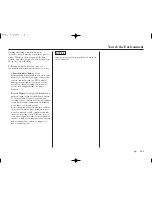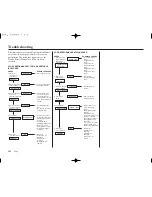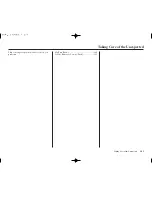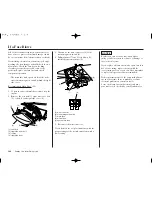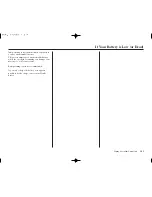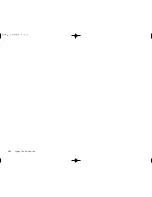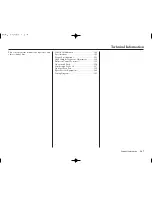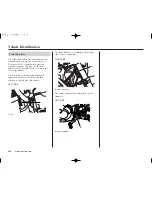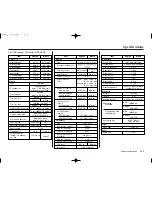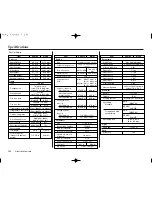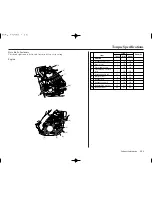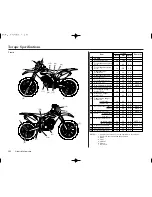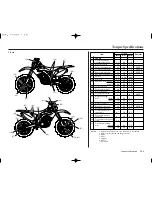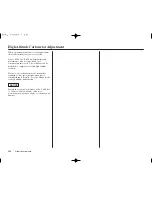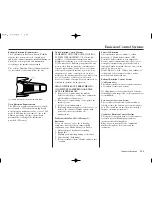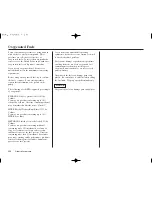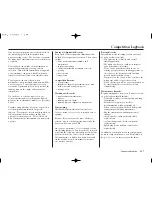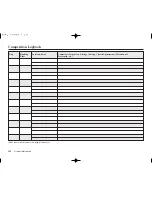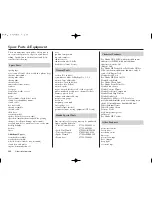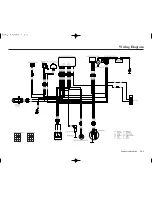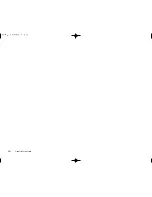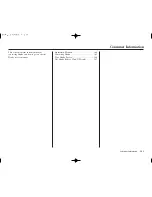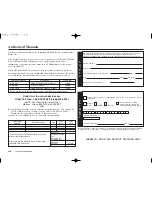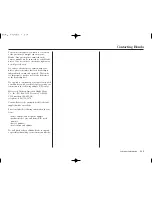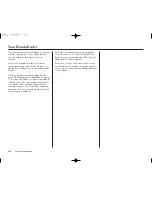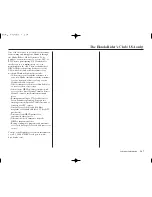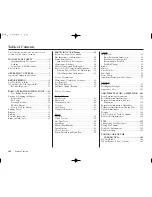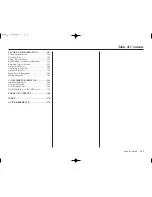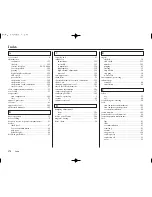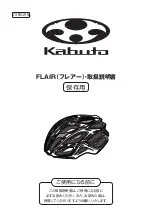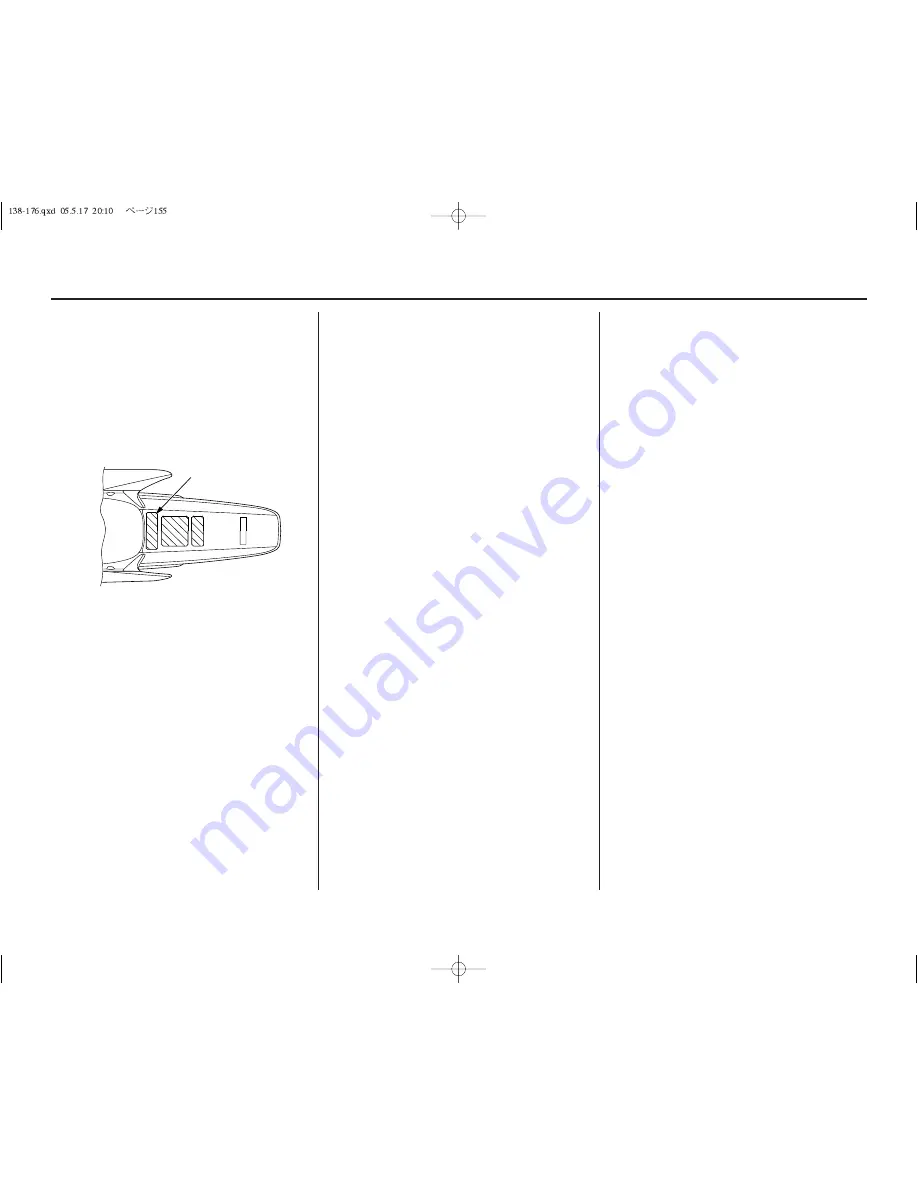
Emission Control Systems
Exhaust Emission Requirements
The California Air Resources Board (CARB)
requires that your motorcycle comply with
applicable exhaust emissions standards during its
useful life, when operated and maintained
according to the instructions provided.
The vehicle Emission Control Information label
(1) is attached to the frame below the seat.
Technical Information
155
(1) vehicle emission control information label
Noise Emission Requirements
The EPA also requires that motorcycles built
after January 1,1983 comply with applicable
noise emission standards for one year or 1,865
miles (3,000 km) after the time of sale to the
ultimate purchaser, the time operated and
maintained according to the instructions
provided. (USA only)
Noise Emission Control System
TEMPERING WITH THE NOISE CONTROL
SYSTEM IS PROHIBITED: U.S. federal law
prohibits, or Canadian provincial laws may
prohibit the following acts or the causing thereof.
(1) The removal or rendering inoperative by any
person, other than for purposes of maintenance,
repair or replacement, of any device or element
of design incorporated into any new vehicle for
the purpose of noise control prior to its sale or
delivery to the ultimate purchaser or while it is in
use; or (2) the use of the vehicle after such
device or element of design has been removed or
rendered inoperative by any person.
AMONG THOSE ACTS PRESUMED TO
CONSTITUTE TAMPERING ARE THE
ACTS LISTED BELOW:
1. Removal of, or puncturing the muffler,
baffles, reader pipes, or any other component
which conducts exhaust gases.
2. Removal of, or puncturing of any part of the
intake system.
3. Lack of proper maintenance.
4. Replacing any moving parts of the vehicle, or
parts of the exhaust or intake system, with
parts other those specified by the
manufacturer.
Problems that May Affect Motorcycle
Emissions
If you are aware of any of the following
symptoms, have the vehicle inspected and
repaired by your Honda Motorcycle Dealer.
1. Hard starting or stalling after starting.
2. Rough idle.
3. Misfiring or backfiring during acceleration.
4. After-burning (backfiring).
5. Poor performance (drive ability) and poor fuel
economy.
Source of Emission
The combustion process produces carbon
monoxide (CO) and hydrocarbons (HC).
Control of hydrocarbons is very important
because under certain conditions, they react to
form photochemical smog when subjected to
sunlight. Carbon monoxide does not react in the
same way, but it is toxic.
Honda Motor Co., Ltd. Utilizes lean carburetor
settings and other systems to reduce carbon
monoxide and hydrocarbons.
Exhaust Emission Control System
(California only)
The exhaust emission control system consists of
a secondary air injection system.
No adjustments to this system should be made
although periodic inspection of the components is
recommended.
Secondary Air Injection System
The secondary air injection system introduces
filtered air into the exhaust gases in the exhaust
port. The secondary air injection system helps
improve emission performance.
Crankcase Emission Control System
The engine is equipped with a closed crankcase
system to prevent discharging crankcase
emissions into the atmosphere.
Blow-by gas is returned to the combustion
muffler through the air cleaner and the
carburetor.
(1)
Summary of Contents for CRF250X 2006
Page 1: ...2006 Honda CRF250X OWNER S MANUAL COMPETITION HANDBOOK ...
Page 10: ...6 Motorcycle Safety ...
Page 16: ...12 Before Riding ...
Page 26: ...22 Basic Operating Instructions ...
Page 150: ...146 Taking Care of Unexpected ...
Page 165: ...Technical Information 161 Wiring Diagram ...
Page 166: ...162 Technical Information ...
Page 177: ...Memo 173 ...
Page 178: ...174 Memo ...
Page 179: ...Memo 175 ...

